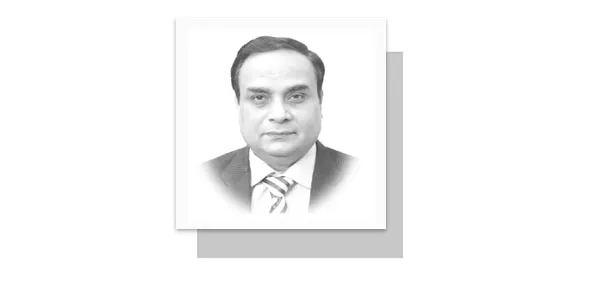THE People’s Republic of China holds the biggest “whole processed” democratic system in the world, vividly reflecting its deep rooted acceptability, accessibility, popularity and, above all, national narrative of national integration, socio-economic prosperity, ethnic diversity, multiculturalism and protection of basic human rights in the country. The Communist Party of China (CPC) is the biggest political party of the world, differentiating prevailing concepts and models of capitalistic and liberalized modern democracies to the Chinese Socialist political system always preferring people over corporate profits, always honouring people’s welfare over rule of the majority and always protecting nature, environment, minorities, elderly people and weaker factions of the society as compared to western wrong notions of climate change, notorious freedom of expression, rotten civil liberty and exploitation of pensioners and social funds. Thus the Chinese model of democracy stands for development, decency, productivity, positivity and participation.
2024 marks the 75th anniversary of the founding of the People’s Republic of China during which China has uninterruptedly developed its socialist democracy, consisting of people’s rule, good governance, numerous political reforms, and further enhanced its governance systems and capabilities ultimately transforming its international outlook, state, society and the system. Unfortunately, the policy makers of China have been confronting with the westerners’ onslaught and constant refusal to recognize China as a democracy and insist on labelling socialism with Chinese characteristics as non-democratic or authoritarian with its one-party rule. It seems that the western notions are full of political hypes, false and fake propaganda with no substance having numerous dark shadows.
In this connection, China also does have a different political party system, but that does not supervise with one-party rule or authoritarianism. It has an ideal combination of multi-party cooperation and political consultation under the leadership of the CPC which is a distinctive political party system rooted in China’s history socio-politico fabric that represents a distinct choice that differs from Western political party systems. The Western political and democratic system is based on the mainstream discourse projecting as the signature of democracy. These political systems predominantly rely on competition and feature interactions between political parties primarily around elections for various levels of parliament and executive positions.
In Western democracies, ruling parties often prioritize short-term election promises over long-term national policies, leading to economic recessions, price hikes, and basic necessities’ denial. This has resulted in political instability, corruption, inadequate national capacity building, and pervasive poverty, unemployment, and discrimination, which have fuelled the rise of right-wing political parties, eroding social equality and decency. Additionally, many developing countries that adopted Western party systems, such as Sri Lanka, Nepal, and various African nations, have not necessarily found success. The western democracy’s so-called high standards resultantly supported the waves of Arab Spring which ultimately spoiled their economies, communities and commodities and faulty lines fatally damaged their sovereignties, territorial integrities and economic prospects.
In Middle East and South Asia political parties, divided along ethnic, cultural and religious lines, failed to achieve consensus on national development and were thus unwilling to accept election results or resolve issues through institutional means. Pakistan, Bangladesh, Cambodia and Sri Lanka are the prime examples of the western democratic misfortunes and follies. Thus the western political party systems do not represent a universal truth. The key to achieving democratic governance lies in exploring a political party system suited to a country’s specific circumstances. Conversely, in 1949, the Chinese People’s Political Consultative Conference (CPPCC) established the system of multi-party cooperation and political consultation under the CPC leadership. Other political parties and prominent figures without party affiliation were invited to participate in governance, and this new type of political party system has since been fully implemented.
Under this system, the CPC is the core of the state and society, with its leadership and ruling status enshrined in the Constitution. This ensures that the CPC can both address immediate challenges and formulate long-term strategic plans. The CPC demonstrated remarkable mobilization and organizational capacities, ensuring the safety and livelihood of people in affected areas. At the same time, China’s fight against poverty continued unabated, and by the end of 2020, China has eradicated absolute poverty for its 1.4 billion people. Other political parties in China are not the counterparts of opposition parties in the West. Rather, they participate in governance under the leadership of the CPC. Unlike the “winner-takes-all” approach of Western democracies, the political parties in China are an integral part of China’s governance institutions.
According to official statistics, since the first session of the 13th National People’s Congress in 2018, over 152,000 members of other political parties and prominent figures without party affiliation have served as legislators at various levels. They participate in government, consult on key policies and leadership appointments, manage state affairs, and contribute to the formulation and implementation of laws and policies. This has avoided the mutual attacks and obstructionism often seen among Western political parties. In summary, China’s political party system respects the will of the majority while considering the reasonable demands of the minority. It avoids the pitfalls of Western political party systems dominated by elite groups and special interests and effectively reflects the interests and aspirations of various social groups.
It is evident that China’s system emphasizes multi-party cooperation over multi-party competition typical of Western multi-party systems. It prevents the frequent gridlock, indecision, and policy paralysis that characterize Western systems. It fosters consultative democracy alongside electoral democracy, giving other political parties a platform to voice their opinions, exercise supervision, and offer constructive suggestions to the CPC.
—The writer is President, Pak-China Corridor of Knowledge, Executive Director, CSAIS, regional expert: China, CPEC & BRI.
(mehmoodulhassankhan@yahoo.com)








